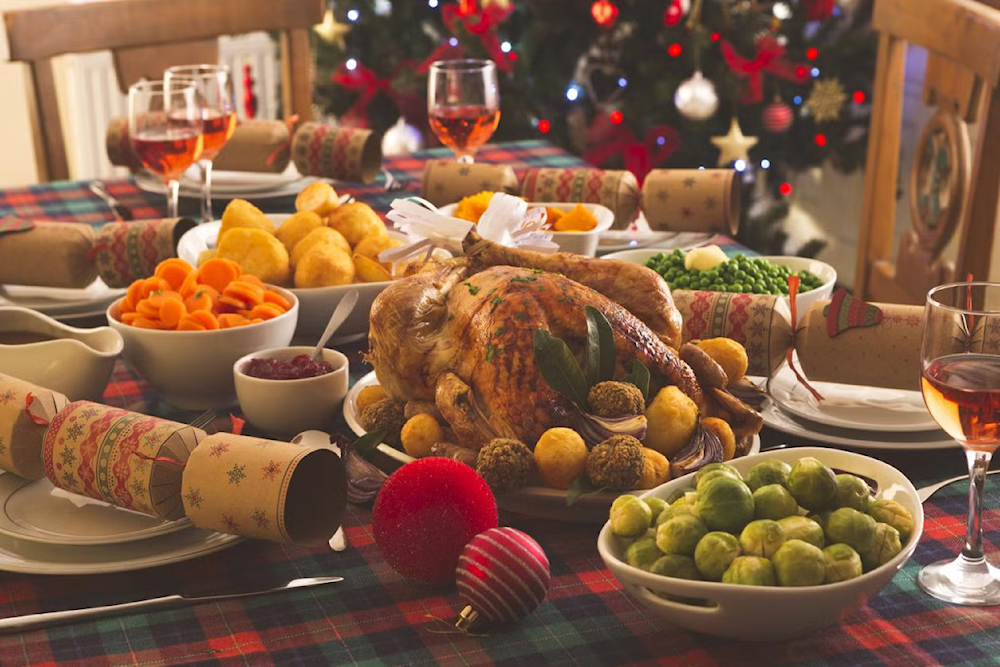Christmas dinner in the UK costs 13% more than last year: Study
The study shows that this year, a meal would cost £4.14 per person, as opposed to £3.67 in 2022, for the cheapest possible price for a basket containing 11 dinner items.
-

A Christmas dinner table is seen here, in this undated photo.(Getty Images via AFP)
Cited by The Guardian, an annual survey by Good Housekeeping magazine states that a Christmas dinner could cost households in the UK 13% more than last year, which means that a minimum of £33.08 ($42.30) will be needed to pay for feeding a family of eight people.
The study shows that this year, a meal would cost £4.14 per person, as opposed to £3.67 in 2022, for the cheapest possible price for a basket containing 11 dinner items.
According to the analysis, carrots and Brussels sprouts show the most increase in price - more than 150% for each, because of bad weather and ill growing conditions. It is reported by retailers as well that broccoli and cauliflower are also affected. Parsnips have increased by 71% and potatoes by 45%.
Turkey is also up by 11% (£1.50 per person) this holiday while mince pies are 15% more costly, and no change is reported in the cost of butter or cranberry sauce.
Read next: The UK is now a poor nation, poorer than the US: Report
Richard Caines, the principal analyst for UK food and drink at the market research firm Mintel, explains, “The increase in the price of a Christmas dinner reflects ongoing high food inflation in 2023, which still stood at 10% in October”.
Citing the report, Caines notes: “The impact of rising production costs including high energy costs, along with the impact of poor weather on growing conditions, have contributed to the higher prices of root vegetables, undoubtedly pushing up the price of traditional Christmas favorites including carrots and parsnips”.
'Don't be fooled'
However, some retailers such as Tesco launched a seasonal campaign with sales and deals on a festive feast “bundle.”
Good Housekeeping’s consumer affairs director, Emilie Martin, adds, “To help keep the cost of Christmas food down this year, shop around to get the best deals, always visit the supermarket with a shopping list – and stick to it. Don’t be tempted by promotions for festive food you don’t actually need that could just go to waste”.
This study comes a day after the UK's national energy regulator, Ofgem, stated that households have accumulated debts on electricity and gas supply of around £3 billion ($3.8 billion) with electricity and gas suppliers - increasing by £400 million ($507 million) since mid-October, and recording their highest level ever.
As outlined in a report earlier this month by the UK Competition and Markets Authority (CMA), numerous well-known grocery suppliers have been raising prices beyond their production costs, leading to what is described as 'greedflation'.
Even more, back in November, the Joseph Rowntree Foundation (JRF) charity reported that around 2 million households reached a point where they are turning their fridges off to save money amid a “frightening” level of hardship for the first time since May.
The JRF stated that four out of five households on universal credit were going without food, turning off the heat, not replacing worn-out clothing, and resorting to “desperate measures”.
The JRF noted that although the government allocated over £12 billion for the cost of living support, 7.3 million households have still gone without food and other essentials in the last six months.

 3 Min Read
3 Min Read








